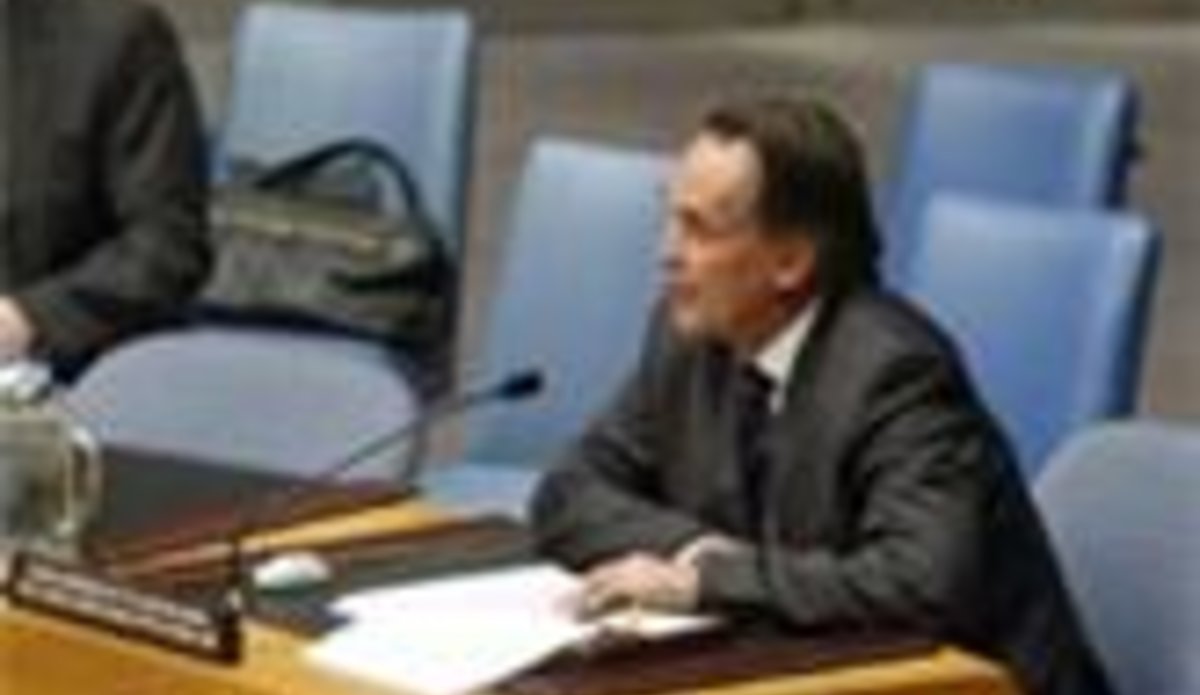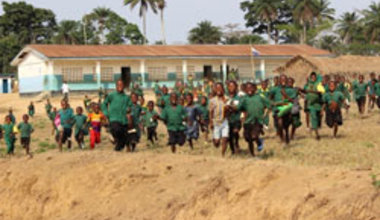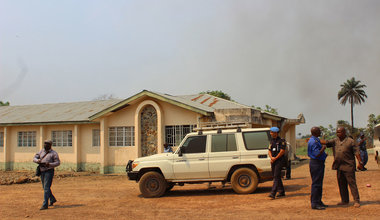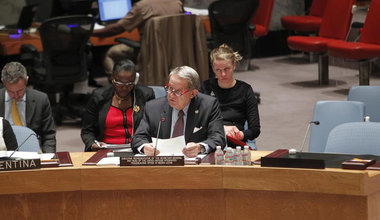SIERRA LEONE EMBARKED ON A JOURNEY TOWARDS PEACE AND DEMOCRACY
14 September 2009 - "Sierra Leone has embarked on a remarkable journey towards a stable, peaceful and democratic country since the end of the war seven years ago", said Michael von der Schulenburg, the Secretary-General's Executive Representative for Sierra Leone on 14 September in New York. In his briefing to the Security Council, Mr. von der Schulenburg emphasized that "during this short time Sierra Leone had to not only leave behind the horrors of its civil war but also start building a new national identity and creating the state institutions that will turn Sierra Leone into a functioning democratic society.
Even more importantly, Sierra Leone wants to do so by maintaining its internal peace, by promoting the rule of law, by observing democratic processes and by creating economic prosperity for its people. By any standard, this is a colossal task – especially in the short time frame we all want this to be achieved."
Further Mr. von der Schulenburg stressed that economic prosperity is needed as a fundament to build democracy on, as well as an educated middle class as the example of many other societies shows. Economic prosperity, he explained, was gained through long and difficult processes. " And above all", he said, "the process of building nations and of creating functioning state institutions had taken most modern nations centuries to accomplish."
"What Sierra Leone will need to succeed is time, patience, determined national leadership and continued international support," he added.
Mr. Schulenburg noted that Sierra Leone is one of the poorest countries in the world, it does not have a large educated middle class and over 70 per cent of the population remains illiterate. In addition, state institutions remain weak and the nation's journey towards prosperity is taking place in a "difficult" regional environment.
The political and security situation in West Africa remains "highly precarious," said the Executive Representative, noting worrying signs of military coups and ethnic and inter-religious conflicts, as well as threats from illicit drug trafficking and international crime.
Given the interdependence of most countries in the sub-region, this could ultimately threaten Sierra Leone's achievements. On the other hand, a successful and peaceful Sierra Leone could have a positive influence on the developments in the region, added Mr. Schulenburg, who also heads the UN Integrated Peacebuilding Office in Sierra Leone (UNIPSIL).
"Sierra Leone will need the international community for continued political, financial and economic support, but let us not forget that we too will need Sierra Leone for fostering regional peace and stability."
He noted that, over the last year, UNIPSIL has been able to prove that it is possible to draw down a large and expensive peacekeeping operation and replace it with a "much cheaper and leaner" peacebuilding mission.
With a staff of only 73, UNIPSIL – which last August replaced the previous UN political office in the country, known as UNIOSIL – has maintained a strong role as a political facilitator in the country, as demonstrated by the Office's role in helping to resolve the recent outbreak of violence in the country, he said.
In his latest report on the Office, Secretary-General Ban Ki-moon recommended a one-year extension of the mandate of UNIPSIL, which works closely with the UN Peacebuilding Commission in supporting the post-conflict peacebuilding efforts of the country.
 UN
UN




